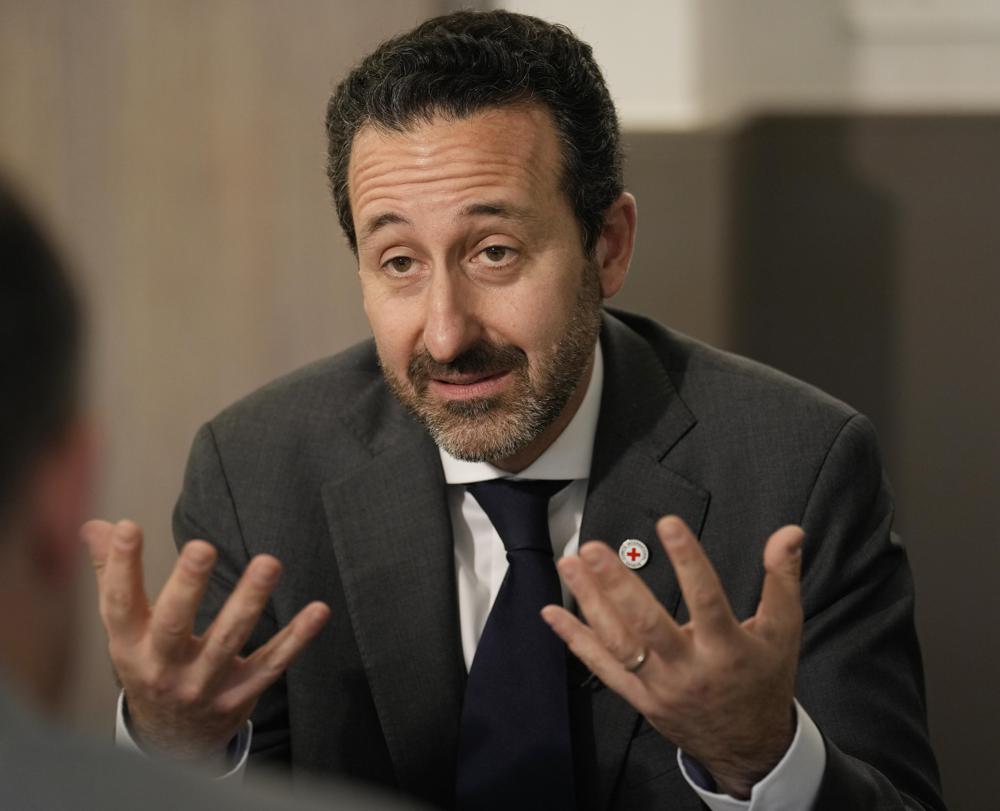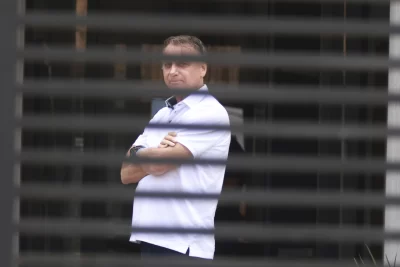
DUBAI, United Arab Emirates — The ongoing Russian war on Ukraine has become “nothing short of a nightmare” for those living in besieged cities, a top Red Cross official said Monday, calling for safe passage out for civilians and humanitarian aid to be allowed through the front lines.
Robert Mardini, the director-general of the International Committee of the Red Cross, also called the war “catastrophic” for civilians affected by the fighting as people run out of drinking water, food, medical supplies and fuel for heating — particularly in the surrounded Ukrainian city of Mariupol. Medical facilities also continue to be targeted in attacks.
And while the Red Cross continues to speak with Russian and Ukrainian leaders, Mardini said there’s so far been no established routes for people to safely leave Mariupol and some other areas facing intense warfare.
“People are in desperate need to to take shelter, and this is why the situation cannot, cannot continue like this,” he told The Associated Press while on a visit to Dubai in the United Arab Emirates. “History is watching what is happening in Mariupol and other cities and civilians must be protected. So whether (it’s) a cease-fire, or a combination of a cease-fire and safe evacuation of civilians, is an absolute must.”
The Geneva-based Red Cross, which aids those affected by war and tries to educate combatants of the rules of armed conflict, has 600 staffers in Ukraine and plans to send in around 100 more. Some Red Cross vehicles have been damaged by shrapnel or hit by fire, though its staffers don’t believe it has been directly targeted, Mardini said.
However, he acknowledged the dire situation faced by medical facilities in the country. There have been at least 31 attacks on medical facilities and ambulances in the war, killing at least 12 people and wounding 34 others, according to the World Health Organization.
“This is a tragedy of armed conflict happening in densely populated areas and where explosive weapons with large radius are used,” Mardini said. “And we’ve seen neighborhoods that have been damaged, flattened, and some hospitals have (been shelled), which, of course, is unacceptable because hospitals are protected by international humanitarian law.”
Red Cross officials are “also living in Mariupol, so they are feeling exactly what ordinary Ukrainians are feeling today in Mariupol,” Mardini said. “They told us recently that they were running short of drinking water. Food supplies are starting to lack. Medical supplies are extremely rare. And there is also a huge pressure on shelters. There are not enough shelters.”
He added: “In Mariupol, the city is encircled and civilians today cannot make it out of the city.”
Prisoners of war also remain a concern. Asked about social media videos that circulated of alleged Russian conscripts surrendering to Ukrainian forces, Mardini said: “Detainees should not be exposed to public curiosity.”
Mardini, however, repeatedly declined to discuss the types of weaponry used or describe in detail the discussions he’s had with Russian and Ukrainian officials. He cited the Red Cross’ neutrality in conflict and the needed to be able to access war-torn areas. However, he acknowledged the breadth of the destruction.
“When we look at the devastation, when we look at how some neighborhoods are looking like today, it is really frightening,” he said. “And it it tells a lot about a situation that is nothing short of a nightmare for people living there.”
Mardini said discussions remained ongoing about how to let civilians safely flee Mariupol, but “it cannot happen in a couple of hours.”
“It takes days and it needs to be planned in a very professional way in order to offer civilians the safety they need and they require,” he said.
Asked if they’d had success speaking to both diplomats and those on the battlefield, Mardini added: “We will be able to report on success based on the results on the ground, and today we are still waiting for concrete action on the ground in the best interests of civilians.”




